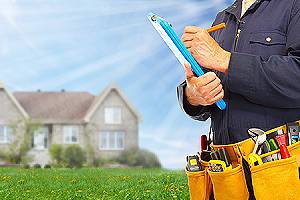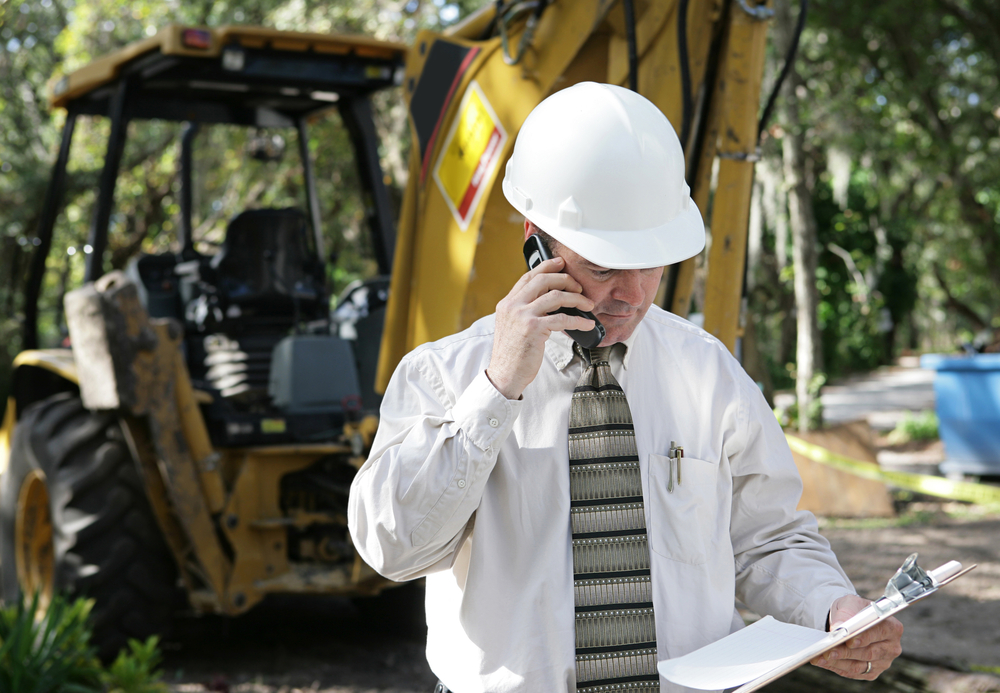The Ultimate Guide to Air Conditioning Repair: Expert Tips for Keeping Your Cool
 Are you tired of feeling hot and uncomfortable in your own home? Is your air conditioning system giving you trouble, leaving you sweating and frustrated? Look no further! In this ultimate guide to air conditioning repair, we will provide you with expert tips and advice to help you keep your cool all year round.
Are you tired of feeling hot and uncomfortable in your own home? Is your air conditioning system giving you trouble, leaving you sweating and frustrated? Look no further! In this ultimate guide to air conditioning repair, we will provide you with expert tips and advice to help you keep your cool all year round.
Whether you’re dealing with a malfunctioning unit, poor airflow, strange noises, or any other air conditioning woes, our comprehensive guide is here to assist you. Our team of HVAC experts has years of experience in the industry and is dedicated to providing you with the most effective solutions for your air conditioning needs.
From simple troubleshooting techniques to more complex repairs, we will walk you through step-by-step instructions to help you identify and fix common air conditioning problems. We’ll also share insider tips on maintenance practices that can extend the lifespan of your unit and prevent future issues.
Don’t let a faulty air conditioner ruin your comfort and increase your energy bills. Stay tuned for our expert advice, and say goodbye to sweaty days and sleepless nights!
Signs that Your System Needs Repair
Is your air conditioning system not performing as it should? Here are some common signs that indicate your unit may need repair:
- Insufficient cooling: If you notice that your air conditioner is not cooling your home adequately, it could be a sign of a problem. It may be due to a refrigerant leak, a malfunctioning compressor, or a clogged air filter.
- Poor airflow: If you feel weak airflow or notice that some rooms in your house are not getting sufficient airflow, there might be an issue with your air conditioning system. A clogged air filter, blocked ducts, or a faulty blower motor could be the culprit.
- Strange noises: Unusual sounds coming from your air conditioner, such as grinding, banging, or squealing, can signify a problem. It could indicate a loose or worn-out component, a damaged fan blade, or a malfunctioning motor.
- Frequent cycling: If your air conditioner is constantly turning on and off, known as short cycling, it may be a sign of an underlying issue. Short cycling can result from a faulty thermostat, a refrigerant leak, or an oversized unit.
- Water leakage: If you notice water pooling around your air conditioning unit or water dripping from the vents, it’s a clear indication of a problem. It could be due to a clogged condensate drain line or a malfunctioning condensate pump.
If you encounter any of these signs, it’s essential to address the issue promptly to prevent further damage to your air conditioning system. In the next section, we will discuss common air conditioning problems and their solutions.
Common Problems and Their Solutions
Air conditioning systems can experience various issues that hinder their performance. Here are some common problems you may encounter and their possible solutions:
- Refrigerant leak: A refrigerant leak can cause your air conditioner to blow warm air or fail to cool properly. If you suspect a refrigerant leak, it’s crucial to contact a professional HVAC technician to locate and repair the leak. They will also recharge the system with the correct amount of refrigerant.
- Frozen evaporator coil: If you notice reduced airflow or warm air blowing from your vents, it could indicate a frozen evaporator coil. This can be caused by restricted airflow due to a dirty air filter, low refrigerant levels, or a malfunctioning blower motor. To thaw the coil, turn off the system and let it defrost. Then, address the underlying cause to prevent future freezing.
- Clogged air filter: A dirty air filter can restrict airflow, reduce cooling efficiency, and strain your air conditioning system. Regularly check and clean or replace the air filter every one to three months, depending on your usage and the type of filter. This simple maintenance task can improve airflow and prevent unnecessary strain on your unit.
- Faulty thermostat: A malfunctioning thermostat can cause temperature inconsistencies and improper cooling. Ensure that your thermostat is set to the correct temperature and mode. If the issue persists, consider replacing the thermostat or contacting a professional for assistance.
- Electrical problems: Electrical issues, such as tripped breakers or faulty wiring, can disrupt the operation of your air conditioning system. If you experience power-related problems, it’s crucial to consult a qualified electrician to address the issue and ensure the safety of your home.
Remember, some air conditioning problems may require professional expertise to diagnose and repair. In the next section, we will provide you with some DIY air conditioning repair tips that you can try before calling a professional.
DIY Air Conditioning Repair Tips
While some air conditioning problems require professional assistance, there are several troubleshooting techniques you can try on your own. Here are some DIY air conditioning repair tips that may help you resolve minor issues:
- Check the thermostat settings: Ensure that your thermostat is set to the desired temperature and cooling mode. Sometimes, a simple adjustment can solve temperature inconsistencies.
- Clean or replace the air filter: A dirty air filter can restrict airflow and reduce cooling efficiency. Check the air filter and clean or replace it if necessary. Refer to your unit’s manual for instructions on proper filter maintenance.
- Clear debris around the outdoor unit: The outdoor condenser unit can accumulate debris, such as leaves, dirt, or grass clippings. Clear any obstructions around the unit to ensure proper airflow.
- Inspect and clean the condensate drain line: Over time, the condensate drain line can become clogged with dirt and algae, leading to water leakage. Use a wet/dry vacuum or a wire brush to remove any blockages. Regularly cleaning the drain line can prevent water damage and mold growth.
- Check circuit breakers and fuses: If your air conditioner is not receiving power, check the circuit breakers or fuses in your electrical panel. Reset any tripped breakers or replace blown fuses.
It’s important to note that these DIY tips are intended for minor issues and should not replace professional repairs for significant problems. If your air conditioning system continues to malfunction or the issue worsens, it’s best to seek the expertise of a qualified HVAC technician. In the next section, we will discuss when it’s appropriate to hire a professional for air conditioning repair.
When to Hire a Professional
 While DIY techniques can help resolve minor air conditioning issues, certain situations require professional assistance. Here are some scenarios in which it’s best to hire a professional for air conditioning repair:
While DIY techniques can help resolve minor air conditioning issues, certain situations require professional assistance. Here are some scenarios in which it’s best to hire a professional for air conditioning repair:
- Refrigerant leaks: Handling refrigerant requires specialized knowledge and equipment. If you suspect a refrigerant leak, it’s crucial to contact a licensed HVAC technician to locate and repair the leak. They will also ensure that the system is properly recharged with the correct amount of refrigerant.
- Electrical problems: Electrical issues can pose safety risks and should only be handled by qualified electricians. If you experience power-related problems or suspect faulty wiring, consult a professional to diagnose and repair the issue.
- Complex repairs: Some air conditioning problems, such as compressor or motor failures, require advanced knowledge and expertise to fix. Attempting these repairs without proper training can lead to further damage or personal injury. It’s recommended to leave complex repairs to professionals who have the necessary skills and tools.
- Warranty coverage: If your air conditioning system is still under warranty, attempting repairs on your own may void the warranty. Always check the terms and conditions of your warranty and consult a professional authorized by the manufacturer for any repairs.
Remember, hiring a professional HVAC technician ensures that your air conditioning system is repaired correctly and safely. They have the necessary knowledge, experience, and tools to diagnose and fix complex issues. In the next section, we will provide you with tips on choosing the right air conditioning repair service.
How to Choose the Right Air Conditioning Repair Service
When it comes to choosing an air conditioning repair service, it’s essential to find a reliable and reputable company. Here are some tips to help you select the right service provider for your air conditioning needs:
- Research and gather recommendations: Start by researching local HVAC companies and reading customer reviews online. Ask friends, family, or neighbors for recommendations based on their experiences with air conditioning repair services.
- Check licenses and certifications: Ensure that the company you choose has the necessary licenses and certifications to perform air conditioning repairs. Look for certifications such as NATE (North American Technician Excellence) or ACCA (Air Conditioning Contractors of America).
- Verify insurance coverage: It’s important to choose a company that carries liability insurance to protect you and your property in case of any accidents or damages during the repair process.
- Request written estimates: Before hiring an air conditioning repair service, request written estimates from multiple companies. Compare the prices, services offered, and warranties provided. Avoid choosing solely based on the lowest price; instead, consider the overall value and reputation of the company.
- Inquire about warranties: Ask about the warranties offered by the repair service. A reliable company should provide warranties on both parts and labor to give you peace of mind.
- Consider experience and expertise: Choose a company with a proven track record and experienced technicians. Look for companies that have been in the industry for several years and have a reputation for quality workmanship.
By following these tips, you can find a trustworthy air conditioning repair service that meets your needs. In the next section, we will discuss preventive maintenance tips to keep your air conditioning system in top condition.
Preventive Maintenance Tips
 Regular preventive maintenance is key to keeping your air conditioning system running smoothly and efficiently. Here are some essential maintenance tips to help prolong the lifespan of your unit and prevent future issues:
Regular preventive maintenance is key to keeping your air conditioning system running smoothly and efficiently. Here are some essential maintenance tips to help prolong the lifespan of your unit and prevent future issues:
- Clean or replace the air filter: A dirty air filter restricts airflow and reduces cooling efficiency. Clean or replace the filter every one to three months, depending on your usage and the type of filter. This simple task can improve airflow and prevent unnecessary strain on your unit.
- Keep the outdoor unit clear: Regularly remove debris, such as leaves, grass, or dirt, from around the outdoor condenser unit. Ensure that there is at least two feet of clearance around the unit to allow proper airflow.
- Inspect and clean the evaporator and condenser coils: Over time, the evaporator and condenser coils can accumulate dirt and debris, reducing cooling efficiency. Inspect the coils regularly and clean them using a soft brush or a vacuum cleaner with a brush attachment.
- Check and clean the condensate drain line: The condensate drain line can become clogged with dirt and algae, leading to water leakage. Use a wet/dry vacuum or a wire brush to remove any blockages. Regularly cleaning the drain line can prevent water damage and mold growth.
- Schedule professional maintenance: Consider scheduling annual maintenance with a professional HVAC technician. They will inspect, clean, and tune up your air conditioning system to ensure optimal performance and identify any potential issues before they become major problems.
By following these preventive maintenance tips, you can maximize the efficiency and lifespan of your air conditioning system. In the next section, we will provide you with energy-saving tips to help reduce your cooling costs.
Energy-Saving Tips for Air Conditioning
Air conditioning can significantly impact your energy bills, especially during hot summer months. Here are some energy-saving tips to help you reduce your cooling costs:
- Set your thermostat wisely: Set your thermostat to the highest comfortable temperature. Each degree you raise the temperature can result in energy savings. Consider using a programmable or smart thermostat to adjust the temperature automatically based on your schedule.
- Utilize ceiling fans: Ceiling fans can help circulate cool air and create a wind-chill effect, allowing you to raise the thermostat temperature without sacrificing comfort. Remember to turn off fans when you leave the room to save energy.
- Seal air leaks: Air leaks around windows, doors, and ductwork can allow cool air to escape and hot air to enter your home. Seal any gaps or cracks with caulk or weatherstripping to improve energy efficiency.
- Utilize natural ventilation: Take advantage of cooler evenings by opening windows and using natural ventilation to cool your home. Install window coverings, such as blinds or curtains, to block out direct sunlight during the hottest parts of the day.
- Use energy-efficient equipment: When purchasing or replacing your air conditioning system, choose energy-efficient models with a high SEER (Seasonal Energy Efficiency Ratio) rating. These units consume less energy and provide greater cooling efficiency.
By implementing these energy-saving tips, you can reduce your cooling costs and minimize the environmental impact of your air conditioning system. In the next section, we will address some frequently asked questions about air conditioning repair.
Frequently Asked Questions
- How often should I have my air conditioning system serviced? It’s recommended to schedule professional maintenance once a year. Regular maintenance helps keep your system in optimal condition and can prevent potential issues.
- Can I repair my air conditioning system myself? While some minor issues can be resolved with DIY techniques, it’s best to leave complex repairs to professionals. Attempting repairs without proper knowledge and tools can lead to further damage or personal injury.
- What should I do if my air conditioner is blowing warm air? Check the thermostat settings, clean or replace the air filter, and ensure that the outdoor unit is clear of debris. If the issue persists, contact a professional for further diagnosis and repair.
- How long does an air conditioning system typically last? The average lifespan of an air conditioning system is around 15 to 20 years. Regular maintenance and prompt repairs can help extend the lifespan of your unit.
- Why is my air conditioning unit making strange noises? Strange noises can indicate various issues, such as loose components, damaged fan blades, or a malfunctioning motor. It’s best to have a professional diagnose and repair the problem to prevent further damage.
Remember, if you have any concerns or questions about your air conditioning system, it’s always best to consult a professional HVAC technician. In the next section, we will conclude our ultimate guide to air conditioning repair.
Understanding SEER for Homeowners: Making Informed Decisions
When choosing a new air conditioning system for your home, understanding SEER (Seasonal Energy Efficiency Ratio) is crucial. SEER measures the efficiency of air conditioning and heat pump systems by calculating the cooling output over a typical cooling season divided by the total electric energy input. In simpler terms, a higher SEER rating means greater energy efficiency, translating to lower energy bills and reduced environmental impact. The U.S. Department of Energy sets minimum SEER standards, which vary by region. For instance, in 2023, the minimum SEER rating for new central air conditioners is 14 in northern states and 15 in southern states.
When selecting an air conditioning system, consider the SEER rating along with other factors like the size of your home, local climate, and specific cooling needs. While systems with higher SEER ratings cost more upfront, they offer long-term savings on energy bills. Efficient systems use less electricity, making them more eco-friendly and cost-effective. Additionally, higher SEER units often come with advanced features that enhance comfort and convenience, such as variable-speed motors and improved humidity control.
Choosing the right SEER rating for your home involves balancing initial costs with long-term benefits. Evaluate your budget, energy goals, and how long you plan to stay in your home. If you live in a hot climate and use your air conditioner frequently, investing in a higher SEER system makes sense. On the other hand, if you use your AC sparingly, a lower SEER unit might suffice.
Ultimately, understanding SEER helps you make informed decisions about your air conditioning system. Prioritizing energy efficiency can lead to significant savings and a more comfortable, environmentally friendly home. Make sure to discuss SEER ratings with your HVAC professional to find the best system for your needs.
How to Choose the Right System for Your Home
Choosing the right air conditioning system requires careful consideration to ensure comfort and efficiency. First, assess your home’s size and calculate the necessary cooling capacity, measured in BTUs. An HVAC professional can help with this calculation. Next, consider the SEER rating; higher SEER ratings mean greater energy efficiency and lower utility bills. In hotter regions, systems with higher SEER ratings provide more benefits.
Evaluate the type of system that suits your needs. Central air conditioning is ideal for whole-home cooling, while ductless mini-split systems offer flexibility for individual rooms. Window units can be suitable for smaller spaces or single rooms. Look for features like programmable thermostats, variable-speed motors, and advanced filtration systems. These features enhance comfort and efficiency.
Tips for Selecting the Perfect Air Conditioning System
Consider your budget, including installation and long-term maintenance costs. Next, choose a reputable brand with good reviews and a solid warranty. Additionally, compare prices and read customer reviews to gauge the reliability of different brands. While energy-efficient models might cost more initially, they can save you money in the long run.
Moreover, think about your local climate; homes in hotter regions benefit more from high-SEER systems. Also, factor in the insulation and ventilation of your home, as they impact the system’s efficiency. Finally, don’t forget to check the noise levels of the unit, especially if it will be installed near bedrooms or living areas.
Seasonal HVAC Maintenance Tips for Optimal Performance
Conclusion: Keeping your Cool with Proper Air Conditioning Maintenance
Proper maintenance and timely repairs keep your air conditioning system in optimal condition. By following the expert tips and advice provided in this ultimate guide, you can address common issues, prevent future problems, and maximize the lifespan of your unit. Additionally, regular maintenance improves efficiency and lowers energy bills.
For any air conditioning concerns or routine maintenance, reach out to our expert team. Our professionals ensure your system runs smoothly and efficiently. Furthermore, we offer comprehensive services tailored to your specific needs. Don’t let air conditioning problems disrupt your comfort.
Contact us today for reliable, professional service. Stay cool and comfortable all year round with our expert assistance.
Summary

Dirt Connections was started with one goal in mind: providing quality residential and commercial construction services to clients on time and on budget. Reach out for more information on how we can support your next project.
For your convenience our estimates are free and by appointment. Call 703-940-9949 for a free estimate today!















































